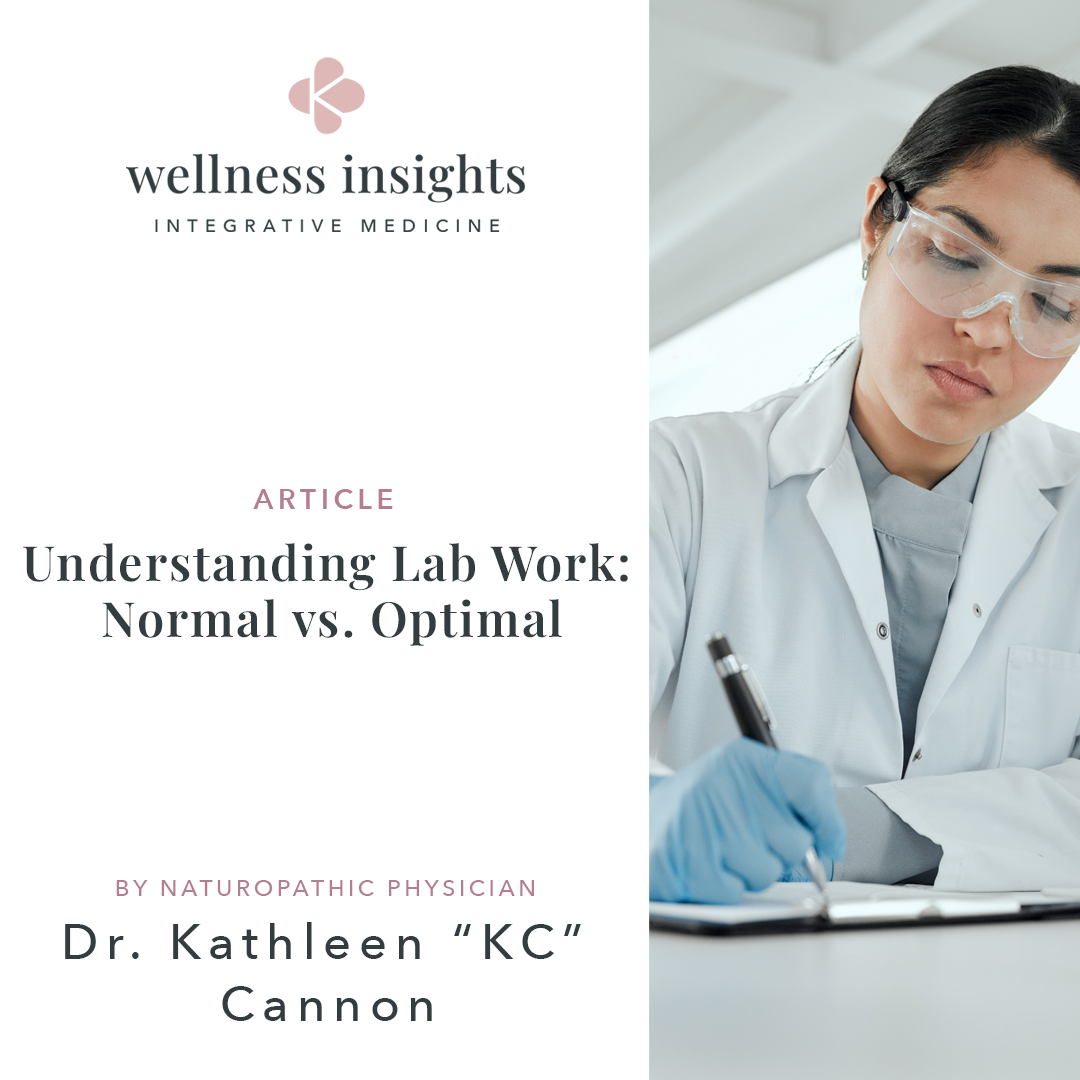Normal vs. Optimal: Understanding Lab Work in Functional & Integrative Medicine
In naturopathic, functional and integrative medicine, we’re always looking to understand the root causes of disease processes in order to best support your health. Not only that, we also want to identify potential problem areas before they become larger issues.
Lab work allows us a glimpse into the inner workings of your physiology: what’s working well and what could use additional support.
We also look for patterns in your lab results, including those that correlate with any symptoms you may be experiencing. We always keep reference ranges in mind, but with your individual health optimization at the forefront. It’s not uncommon for me to recommend a patient take action based on lab results, even if the results appear to be in a “normal” range - as they may not be optimal, and we’re keeping your whole health picture in mind.
In other words, lab work is about more than just checking the box. It provides a more comprehensive view of your health status.
If you’re told by your healthcare provider that “everything looks fine” and your lab work results are technically within normal ranges, but in reality those results are not optimal and reflect concerns that could be contributing to your current symptoms or future state of health.
For example, a vitamin D level of 35 is what is typically called normal or even optimal; in the naturopathic, functional and integrative medicine world, we know that a 35 is far from optimal for vitamin D. Because Vitamin D impacts immune function, energy, mood, hormones and more, it’s important to work towards truly optimizing it, which involves monitoring it for improvement and safety.
We take the time to understand you, your whole health context, insights gleaned from test results and how it all fits together.
You deserve to know what’s happening in your body, prevent issues before they happen and optimize your health. It’s time.
It’s such an honor to do this work.
Questions? Reach out to us - we’re always happy to have a brief exploratory call to discuss how our approach can support you in stepping into your best health.
Resources include:
doi: 10.1038/s41430-020-0558-y
This blog and website do not provide medical advice. It is intended for general informational purposes only and does not address individual circumstances. It is not a substitute for professional medical advice, diagnosis or treatment and should not be relied on to make decisions about your health. Always check with your own healthcare provider before taking a new supplement and before making any significant diet, lifestyle, exercise or other changes. Never ignore professional medical advice in seeking treatment because of something you have read on this site. If you think you may have a medical emergency, immediately call your doctor or dial 911.

